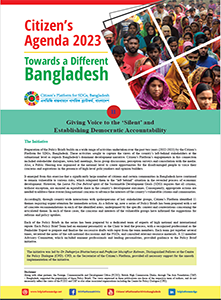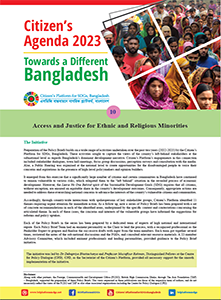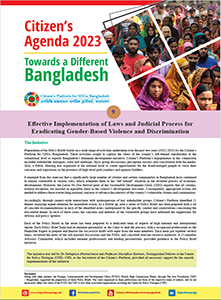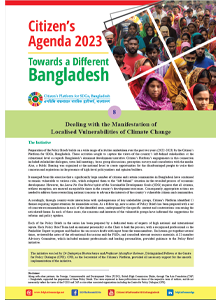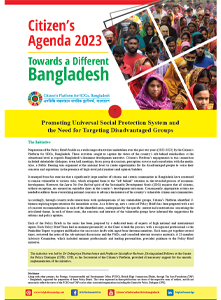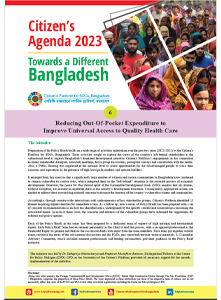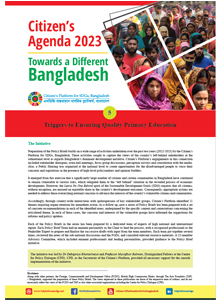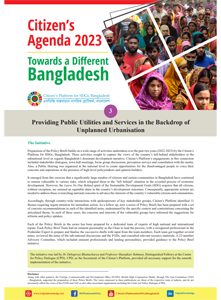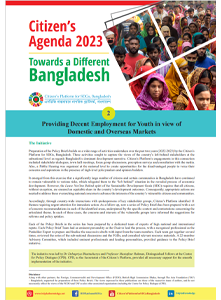Policy Brief 11: Giving Voice to the ‘Silent’ and Establishing Democratic Accountability
Whilst Bangladesh has achieved commendable success in terms of various socio-economic indicators, there are many challenges the country is having to face in moving forward in the twenty-first century. It needs to be noted and appreciated that non-state actors have played a critically important role in the impressive journey that Bangladesh has undertaken over the post-independence period.


